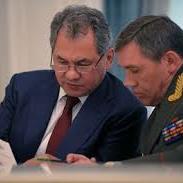(CSIS) Ukraine passed a major test Sunday with the election of a new President, Petro Poroshenko. While voting in the East was restricted by separatist violence, overall the turnout was still a respectable 60% of eligible voters. Russian President Vladimir Putin had already tipped his hand that he would respect the outcome of the vote, so the Russian government is likely to recognize Poroshenko’s victory and engage the new government. Make no mistake, it is unlikely that Putin will abandon efforts to destabilize Ukraine through various economic, intelligence, and military measures, but at least for the moment it appears the effort to establish Novorossiya [New Russia] on Ukrainian territory has suffered a setback. The Ukrainian military routed the rebels who had seized the airport in Donetsk on May 26, and Moscow stayed on the sidelines. Poroshenko’s election is no panacea, but a reasonably peaceful election with a clear outcome was a necessary step to establish a foundation for the rest of the hard work Ukraine must undertake to strengthen its sovereignty in the weeks and months ahead.
There are several important lessons we should take away from this past seven months of crisis that lead me to the conclusion that the White House needs to develop a Eurasia strategy. One, Ukraine’s sovereign vulnerability resulted from economic and military weakness coupled with years of criminal political mismanagement. That Ukraine was so vulnerable was shocking in some ways to a number of interlocutors from Central Asia and the South Caucasus with whom I have spoken in recent months. At the time of the Soviet collapse, Ukraine was at least as richly endowed with economic potential and human capital as any other post-Soviet state. If not for such poor management, indeed aided and abetted by Moscow, Ukraine could look more like Poland than Belarus today, and even by some key economic indicators like per capita GDP, Belarus is ahead of Ukraine. […]
Read the full post here © Center for Strategic and International Studies











